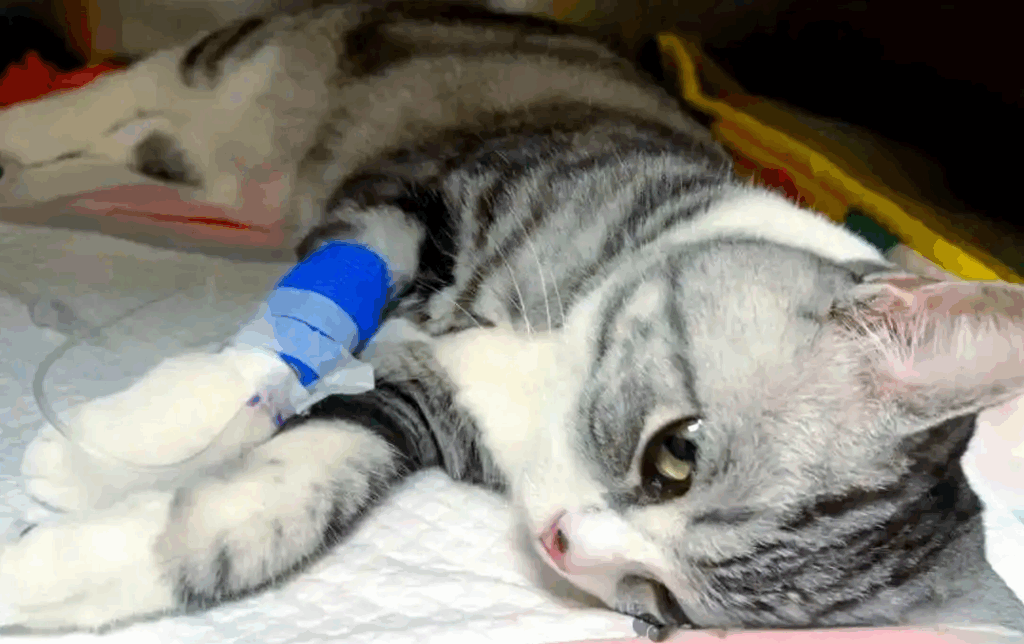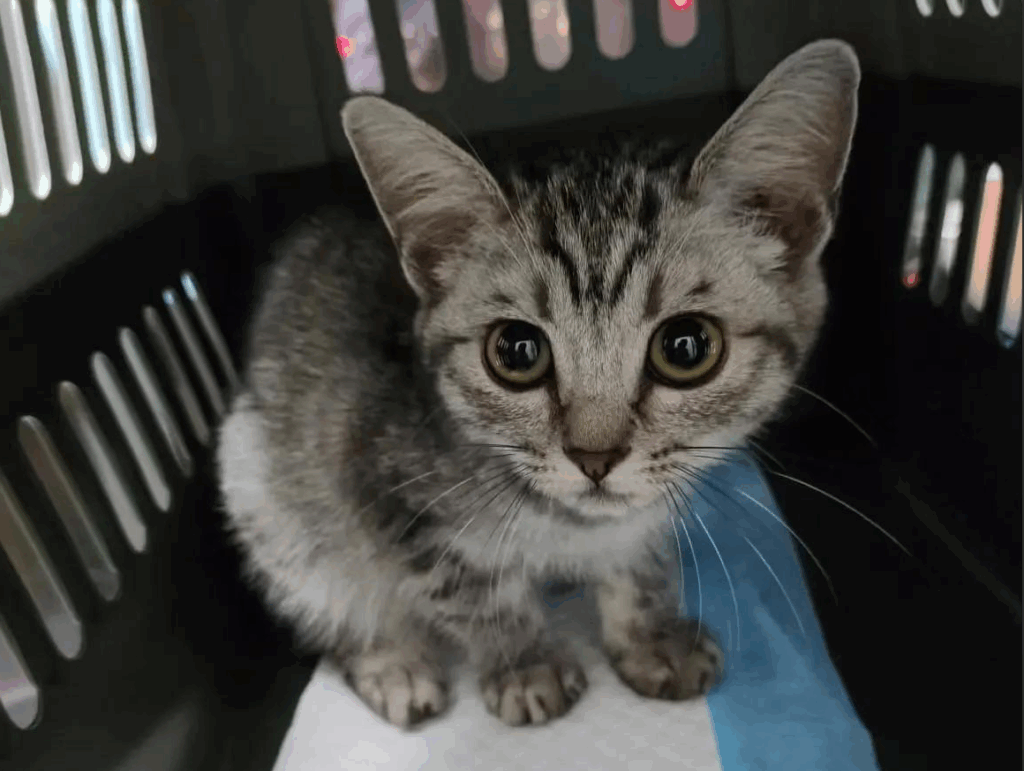How to Care for a Cat with FIP?
Caring for a cat with feline infectious peritonitis (FIP) requires a comprehensive approach combining medical management, nutritional support, environmental adjustments, and vigilant monitoring. Below is a detailed guide tailored to support cats during treatment and improve their quality of life:
I. Medical Management: Ensuring Treatment Compliance
1. Antiviral Therapy Administration
- Injection Protocol (Most Common):
- GS-441524 or GC376: Administer subcutaneously (SC) as prescribed (typically once daily).
- Key Steps:
- Use sterile technique; rotate injection sites (abdomen, flank, scruff) to prevent tissue irritation.
- Warm the medication to room temperature before injection to reduce discomfort.
- Oral Formulations: If prescribed, ensure the cat swallows the full dose (may require pill pockets or syringe administration).
- Medication Tracking:
- Keep a daily log of dosage, injection site, and any adverse reactions (e.g., local swelling, loss of appetite).
2. Supportive Medications
- Antibiotics: For secondary bacterial infections (e.g., amoxicillin-clavulanate), complete the full course.
- Anti-nauseants (e.g., Cerenia): If the cat refuses food due to nausea.
- Fluid Therapy: For wet FIP, veterinarians may drain abdominal/chest fluid or prescribe subcutaneous fluids at home for dehydration.

II. Nutritional Support: Fueling Recovery
1. High-Quality, Palatable Diet
- Key Nutritional Goals:
- High Protein: Target 50–60% of calories from animal-based protein (e.g., chicken, fish, turkey) to support organ repair and immune function.
- Moderate Fat, Low Carbohydrates: Avoid grains or fillers, which may exacerbate inflammation.
- Caloric Density: Choose energy-dense foods (e.g., canned food over dry kibble) to meet high metabolic needs.
- Recommended Foods:
- Prescription diets for hepatic or renal support (if organs are affected), or high-end commercial diets like Royal Canin Recovery, Hill’s Prescription Diet A/D, or homemade diets approved by a veterinary nutritionist.
2. Encouraging Appetite
- Warm Food: Heat canned food slightly to enhance aroma.
- Hand-Feeding: Offer small portions on a spoon or finger if the cat is reluctant to eat.
- Appetite Stimulants: Consult a vet about medications like mirtazapine or cyproheptadine if anorexia persists.
3. Hydration Management
- Offer Fresh Water: Place multiple water bowls around the home, or use a cat water fountain to encourage drinking.
- Wet Food as Hydration Source: Canned food contains ~70% water; mix with warm water to create a soupy consistency.
- Subcutaneous Fluids: If prescribed, learn to administer SC fluids at home to prevent dehydration (common in wet FIP).
III. Environmental Adjustments: Minimizing Stress
1. Create a Stress-Free Haven
- Quiet Space: Designate a cozy, low-traffic room with soft bedding, blankets, and hiding spots (e.g., cardboard boxes) to reduce anxiety.
- Temperature Control: Keep the environment warm (75–80°F/24–27°C), as FIP cats may have trouble regulating body temperature.
- Limit Changes: Avoid rearranging furniture, introducing new pets, or loud noises, which can exacerbate stress.
2. Litter Box Care
- Multiple Boxes: Have 1 more litter box than the number of cats; use unscented, clumping litter for sensitivity.
- Frequent Cleaning: Scoop daily to maintain hygiene, as cats with FIP may be more sensitive to odors.
3. Gentle Interaction
- Limited Handling: Avoid excessive play or grooming if the cat is lethargic; prioritize calm cuddling or quiet companionship.
- Environmental Enrichment: Provide low-energy stimulation like bird-watching through a window or slow-feeder toys to prevent boredom.
IV. Symptom Monitoring: Early Detection of Issues
1. Daily Health Checks
- Temperature: Use a rectal or ear thermometer (normal: 100.5–102.5°F/38–39°C). Fever (≥103°F/39.4°C) may indicate relapse or infection.
- Weight: Weigh the cat weekly on the same scale (unintentional loss >5% of body weight is concerning).
- Appetite & Hydration: Track food/water intake; note any sudden decreases.
2. Signs of Relapse or Complications
- Wet FIP Warning Signs:
- Recurrence of abdominal swelling (ascites), labored breathing (pleural effusion), or jaundice (yellowing of gums/skin).
- Dry FIP Warning Signs:
- Neurological issues (seizures, stumbling, head tilt), vision changes (cloudy eyes, retinal detachment), or new lumps/lesions.
- General Red Flags:
- Persistent vomiting, diarrhea, pale gums, or excessive lethargy.
3. Veterinary Follow-Ups
- Scheduled Tests:
- Blood Work (A/G ratio, globulins, liver/kidney enzymes): Every 2–4 weeks to monitor inflammation and organ function.
- Physical Exams: Regular check-ups to assess fluid accumulation, lymph node size, or neurological status.

V. Supportive Care Techniques
1. Assisting with Mobility
- Joint Support: If the cat has arthritis from inflammation, provide orthopedic bedding or ramps to access high surfaces.
- Gentle Massage: Lightly massage limbs to improve circulation, especially in cats with neurological FIP.
2. Managing Fluid Buildup (Wet FIP)
- Positioning: If the cat has difficulty breathing due to pleural effusion, prop them up on a pillow to ease respiration.
- Post-Drainage Care: After veterinary fluid removal, monitor for rapid breathing or abdominal distension.
3. Emotional Support for Caregivers
- Join Support Groups: Connect with FIP-focused communities (e.g., Facebook groups, Reddit forums) for advice and emotional support.
- Financial Resources: Explore crowdfunding, veterinary payment plans, or organizations like FIP Warriors for assistance.
VI. Special Considerations by FIP Form
1. Wet FIP (Effusive)
- Fluid Management:
- Watch for abdominal bloating or rapid breathing; seek veterinary care if fluid re-accumulates quickly.
- Nutrition Focus: Prioritize low-sodium diets to prevent fluid retention (consult a vet before adjusting).
2. Dry FIP (Non-Effusive)
- Neurological/Ocular Care:
- If the cat has vision loss, keep the environment consistent to avoid disorientation; use eye drops as prescribed for uveitis.
- Seizure Prevention: Minimize stimuli that may trigger seizures (e.g., loud noises, bright lights).
VII. Key Tips for Caregivers
- Stay Consistent: Adhere strictly to the treatment schedule, as missed doses increase relapse risk.
- Document Everything: Keep a journal of symptoms, medication, food intake, and weight to share with your vet.
- Practice Self-Care: Caring for an FIP cat is emotionally draining; seek support from friends or professionals when needed.
VIII. Summary Care Checklist
| Care Aspect | Action Steps | Frequency |
|---|---|---|
| Medication | Administer antiviral injections, track doses, report side effects | Daily (during treatment) |
| Nutrition | Serve high-protein, palatable food; offer fluids; hand-feed if needed | 3–4 times daily |
| Environment | Maintain a quiet, warm space; limit stressors; clean litter boxes daily | Ongoing |
| Monitoring | Check temperature, weight, appetite; watch for relapse signs | Daily/weekly |
| Vet Visits | Attend scheduled blood work and exams; seek help immediately for red flags | As directed by vet |
Caring for an FIP cat is challenging, but with dedication and a collaborative approach with your veterinarian, you can significantly improve their comfort and chances of recovery. Remember that early intervention and consistent care are pivotal to their prognosis.

